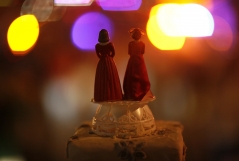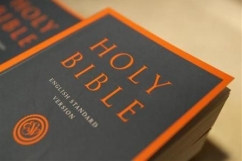Police in Seoul have banned an LGBT pride march due to take place later this month in the South Korean capital following protests from Christian groups.
Officials ruled this week that the parade would create the "possibility of inconvenience to pedestrian and vehicle traffic" and said that too many rallies were planned for the same time. They therefore did not grant permission for it to be held on June 28, making this the first time in 16 years that Seoul will not hold a Pride march. It was planned to conclude a three-week Korean Queer Culture Festival in the city.
The majority of the opposition came from conservative Christians, a group of whom had been camped outside the Seoul's Namdaemun police office for a week before the decision was made. According to the Washington Post, the office had said it would accept applications for using the parade site from midnight on May 29, "immediately turning the police station area into a camp site of competing applicants". Christian groups applied to hold an anti-LGBT demonstration at the same time as the proposed Pride march, and were first to get their documents in.
The decision follows weeks of contention. Anti-LGBT demonstrators branded the city's mayor the "mayor of Sodom" and a number protested outside the City Hall.
The city's refusal to hold the march has been seen as a blow to LGBT rights and critics have accused the authorities of bowing down to pressure from religious groups. A Human Rights Watch blog said: "Rather than worrying about inconveniencing the travelling public, Seoul police instead should be concerned with providing equitable access to demonstration permits and protection for those who wish to demonstrate peacefully."
Organiser of the culture festival, Kang Myeong-jin, said that free speech was being suprressed by Seoul's police. "South Korea's conservative Christians have a great influence on the government and they exercise their authority to solidify power," he said, according to the Washington Post.
"This may be an attempt to find a mutual enemy to turn their eyes away from their internal divisions."
Same-sex relationships are legal in South Korea, but gay couples who live together are not entitled to the same legal protections as heterosexuals. Though the Korean Human Rights Committee Law states that "no individual is to be discriminated against on the basis of his or her sexual orientation," the country also has no direct anti-discrimination law to prohibit discrimination on grounds of sexual orientation or gender identity.
Activists said they are appealing the decision regarding the march, and will still hold the culture festival in downtown Seoul.
















